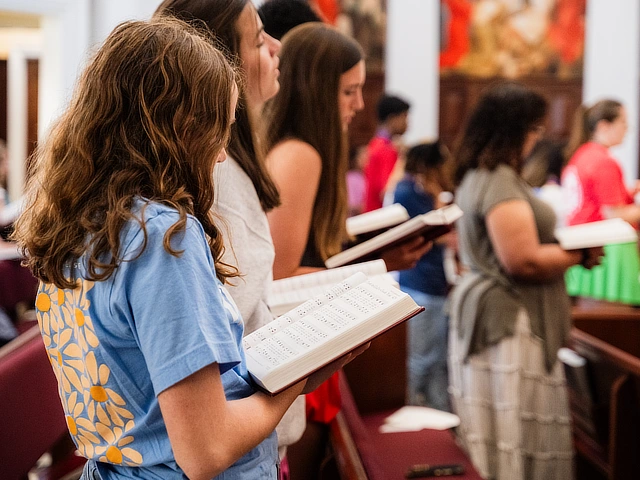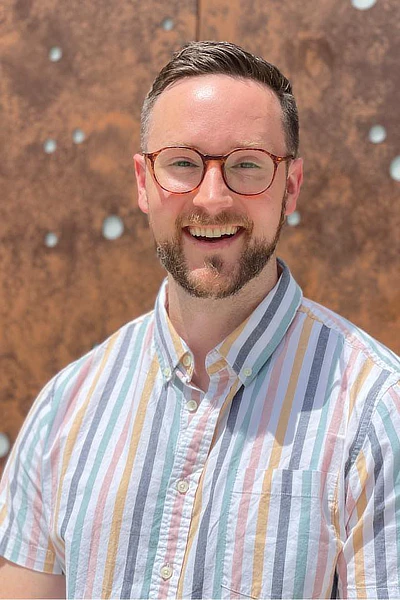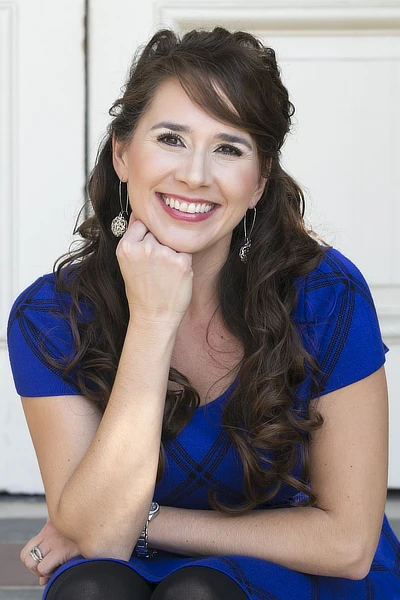
Now the word of the Lord came to me, saying, “Before I formed you in the womb I knew you, and before you were born I consecrated you; I appointed you a prophet to the nations.” Then I said, “Ah, Lord God! Behold, I do not know how to speak, for I am only a youth.” But the Lord said to me, “Do not say, ‘I am only a youth’; for to all to whom I send you, you shall go, and whatever I command you, you shall speak. Do not be afraid of them, for I am with you to deliver you, declares the Lord.” - Jeremiah 1:4-8 (ESV)
What motivates you to participate in worship at your local church? Why do you show up week after week? What keeps you coming back? How does worship influence your day-to-day life?
Now, think about how members of your family might answer those questions. Think about how your friends at church might respond.
I bet you can already sense within you that each person will have a different response. God has fearfully and wonderfully made each of us in God’s image—we are inextricably linked and bound by our common identity as image-bearers. At the same time, we are each unique creations with differing experiences of God and different preferences for how we worship God in the context of community.
For some of us, we might participate in worship because of the beauty and power of congregational song—lyrics matched with melody in the context of gathered believers. For others, music might be something we simply slug through in order to hear the Word proclaimed through scripture readings and sermons. And for others, what’s most important is the community—the friendships, the accountability, the mutual work of discipling. More than likely, it’s a collection of all these things and more that compel us to participate in corporate worship.
And yet, when it comes to young people, how often do we (as those more advanced in years) put young people in a one-size-fits-all box?
“If we make our music more energetic, the young people will participate.”
“If we give young people their own space to worship with only their peers, they will be less bored.”
“If we change ___ or add ___ or take away ___, then maybe it will be compelling to the next generation.”
What we often fail to do is listen deeply to young people on their own terms.
This summer, researchers from the Center for Worship and the Arts with collaborators from other universities have been engaged in a multisite qualitative research project where we have been listening deeply to young people. We want to hear from them: what is it that motivates you to participate in public Christian worship? What do you find compelling or meaningful about your time of weekly worship? How do you feel when you encounter something that’s new or different when it comes to worship?
For this phase in our research, we want to listen to young people who are already actively plugged in to the worship life of their churches. This is why we chose to conduct research at six worship-related summer camps in the United States and Canada—with middle schoolers, high schoolers, and college students of varying races, ethnicities, genders, and denominational identities. We visited Awakening at Hope College, Worship Arts Lab at Azusa Pacific University, Animate at Samford University, One Bread One Cup at St. Meinrad Seminary, Worship Lab at Baylor University, and Ontario Mennonite Music Camp at Conrad Grebel University College. At these camps, we conducted focus groups and individual interviews with over 200 participants and have written participant-observation fieldnotes at dozens of worship services. In other words, we’re sitting on a lot of data right now!
This fall, our collaborative team plans to analyze this data for recurring themes, unique stories, and other compelling insights from young people. These findings will then inform the next phase of our research: the development of a nationwide survey, where we will learn from [hopefully, 1,000+] young people across many levels of religiosity what motivates them to participate in Christian worship.
This research project is deeply rooted in our service to the Church. How can we equip pastors, worship leaders, youth ministers, and other leaders—lay and clergy—to better engage young people in their communities?
Imagine how the Church might flourish when we listen deeply to young people and help them live into the unique callings that God has placed upon their lives.
We are excited about the big things coming from this research! While it’s premature to share any insights with you, we hope you’ll stick with us on this journey. We’ll be slowly rolling out these findings over the next couple of years. Thanks for being a partner with the Center for Worship and the Arts.
“Young People and Christian Worship: Experiences, Stories, and Values” (YPCW) is a collaborative research project jointly sponsored by Saint Paul University, Ottawa, Ontario, and Samford University’s Center for Worship and the Arts, Birmingham, AL. It is a binational, multisite, ecumenical, mixed-methods exploration of how young people (13-18 and 19-29) experience public Christian worship. Primary investigators include Emily Snider Andrews, PhD, Nelson Cowan, PhD, and Sarah Kathleen Johnson, PhD. The YPCW study is made possible thanks to generous funding from Lilly Endowment, Inc., the Calvin Institute of Christian, and Baylor University’s Future Church Grant program.

Rev. Nelson Cowan, Ph.D., Director of the Center for Worship and the Arts at Samford University, is a liturgical theologian, worship leader, and ordained pastor in The United Methodist Church.

Emily Snider Andrews, Ph.D., is Assistant Professor of Church Music and Worship Leadership and Executive Director of the Center for Worship and the Arts at Samford University.
You may also be interested in our five-part blog series on our learning about young people at Animate:
What We’re Learning About Young People and Worship at Animate: What is Animate Again?
What We’re Learning About Young People and Worship at Animate: What Our Research Study Looked Like
What We’re Learning About Young People and Worship at Animate: Themes from Our Findings, Part 1
What We’re Learning About Young people and Worship at Animate: Themes from Our Findings, Part 2
What We’re Learning About Young People and Worship at Animate: Final Thoughts and Future Study
